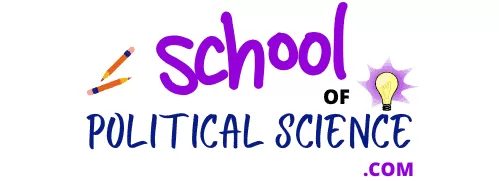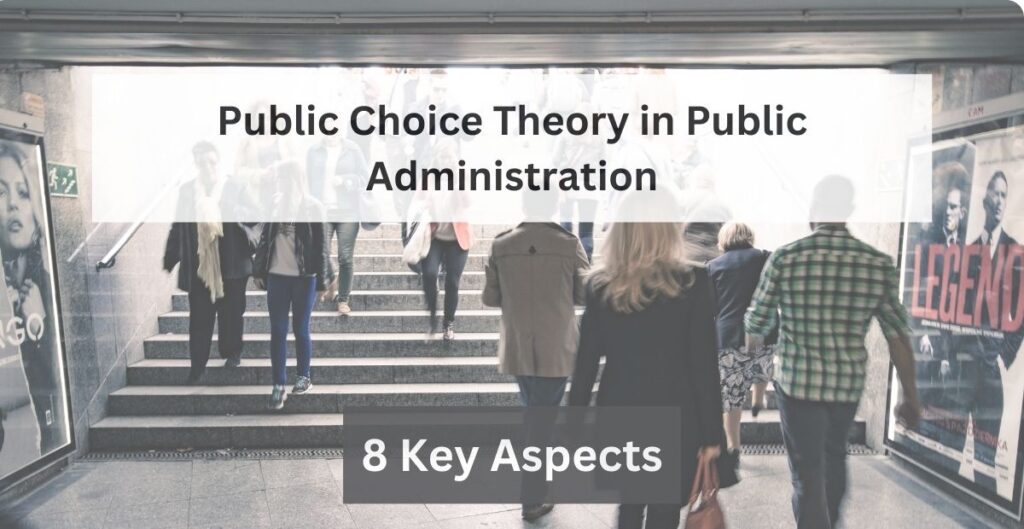Ever wondered why public officials make the decisions they do? Public choice theory in public administration holds the key to unraveling this intriguing mystery.
Imagine, A world where individuals in government are just like you and me, driven by their own self-interest. Public choice theory recognizes that public administrators aren’t immune to human motivations and desires. They weigh the costs and benefits of their choices, just like anyone else.
By understanding public choice theory, we gain valuable insights into how public officials behave. They navigate complex systems, considering the incentives and constraints they face in their roles.
This theory reveals that their decisions are not solely based on the common good but can be influenced by personal interests, political pressures, and external forces.
It’s like lifting the curtain on the decision-making process in public administration. Public choice theory encourages us to delve deeper and critically examine the underlying motivations behind policy choices and actions taken by public administrators.
By studying this theory, we become empowered citizens who can hold our representatives accountable. We can better comprehend the dynamics at play, asking ourselves important questions about the implications of their decisions on our lives and society as a whole.
So, the next time you wonder why public officials make certain choices, remember the fascinating insights offered by public choice theory.
Public choice theory illuminates the human aspect of public administration, serving as a reminder that those in positions of power are motivated by their own interests, much like ordinary individuals. Let’s dive into this captivating realm and uncover the intricacies of decision-making in public administration!
What is Public Choice Theory in Public Administration?
Public choice theory is the study of decision-making in public administration. it focuses on how individuals’ self-interests shape their choices and behaviors in public administration.
We may learn a lot about how government functions and its impacts on society when we comprehend the motivations of elected officials, policymakers, and citizens.
At its core, public choice theory challenges the traditional assumption that individuals in public office always act in the best interest of the public.
Instead, it recognizes that these individuals are rational actors who pursue their own goals and preferences, just like anyone else.
By examining how individual motivations interact with institutional structures, public choice theory offers valuable insights into the intricate dynamics of decision-making within the public sector. It helps us understand the complex factors that influence how decisions are made in government.
Important Aspects of Public Choice Theory
The 8 crucial aspects of public choice theory in public administration are described-
- Rational voter
- Rent-seeking behavior
- Bureaucratic behavior
- Political entrepreneurship
- Implications for public administration
- Aligning individual interests with societal goals
- Transparency, accountability, and citizen participation
- Educating citizens and promoting informed decision-making
1. Rational voter
Voters are not always driven by altruistic intentions or deep policy knowledge; they are motivated by their own self-interest. This means they may support policies that are directly benefited them even if they are not in the best interest of the broader society. Recognizing this behavior is important in understanding the outcomes of democratic processes.
2. Rent-seeking behavior
Rent-seeking refers to individuals or interest groups seeking economic or political benefits through lobbying, influencing legislation, or manipulating regulations.
This behavior often leads to policies that favor powerful and well-connected groups rather than promoting the common good. It highlights the potential negative effects of self-interested behavior in public administration.
3. Bureaucratic behavior
Bureaucrats, like any other individuals, respond to incentives and constraints within the public administration system. They may prioritize their own career advancement or job security over-delivering optimal public services.
Recognizing the self-interests of bureaucrats enables us to spot systemic inefficiencies and come up with solutions to enhance the delivery of public services.
4. Political entrepreneurship
Political entrepreneurs, similar to entrepreneurs in the private sector, identify opportunities for advancing their political careers. Sometimes, politicians prioritize decisions and policies that boost their public image or improve their chances of getting re-elected.
Sadly, these choices may not always align with what’s truly best for the public. Recognizing political entrepreneurship helps us understand the potential biases in policy-making.
5. Implications for public administration
Public choice theory has important implications for designing effective public administration systems. When policymakers align individual interests with societal goals, they can establish institutions and policies that encourage transparency, accountability, and citizen participation.
This ensures government operations in a way that is open, responsible, and inclusive. These measures can help mitigate the negative effects of rent-seeking, bureaucratic behavior, and political entrepreneurship.
6. Aligning individual interests with societal goals
To ensure public administration serves the best interests of all, it is crucial to align individual self-interests with societal goals.
This can be achieved by designing systems that encourage public officials to act in the best interest of the public rather than just pursuing personal gain.
7. Transparency, accountability, and citizen participation
Transparency and accountability systems play an important role in ensuring that public officials act in the public interest.
By making information accessible and holding officials accountable for their actions, we can reduce the potential for self-interested behavior. Moreover, citizen participation in decision-making processes increases the likelihood of policy outcomes that benefit the public as a whole.
8. Educating citizens and promoting informed decision-making
To overcome the biases and motivations of policymakers, it is essential to educate citizens about public choice theory and its implications.
Informed citizens are better equipped to make critical decisions and hold government officials accountable for their actions. Robust public debate and an active civil society are crucial in promoting a more informed and engaged citizenry.
Conclusion
Public choice theory offers important knowledge about how individuals and groups make decisions in public administration. By recognizing the influence of self-interest and incentives, we can create improved institutions and policies that align everyone’s interests with society’s goals. Let’s keep exploring this field and aim for a better understanding of how we can shape public administration to benefit everyone.
Must Read Guide–

